|
Gas prices hit a record high this week. As a result of the Russian invasion of Ukraine, followed by worldwide sanctions and boycotts of Russian oil and other goods, prices have soared. Economics 101 tells us that limiting supply without decreasing demand is going to make the prices climb. Economists are also fond of saying that the cure for high prices is high prices. As you can see in the chart below, whenever consumers curtail their driving habits, whether it is due to a pandemic or a recession, gasoline and oil prices plunge. U.S. is Oil Independent The United States is virtually oil independent. We produce about 20% of the world’s oil supply, and we also consume about that amount. In 2020, the U.S. became a “net petroleum exporter” for the first time since at least 1949, according to the Energy Information Association. In reality, there’s a lot more trade that goes on. Russian petroleum imports accounted for 7% of the total imports to the U.S. Prior to the Invasion of Ukraine, supply and demand determined whether U.S. oil stays local, or goes to Mexico or another country. Additionally, when we fight a war in the Middle East or on another continent, we do not ship our oil over to the conflict. Rather, we purchase it locally. According to the former Secretary of the Navy Ray Mabus, oil and war have a price on lives – with one soldier killed or wounded in every 50 convoys of oil during the wars in Afghanistan and Iraq. At face value, you might think that the U.S. is in a position to benefit from a ban on Russian oil. However, many US oil companies have businesses in Russia. The ban means that there could be a material write-down in the 1st quarter earnings report, as well as missing out on a substantial piece of their revenue. One exception to that is Conoco Phillips. Conoco Phillips exited their Russian interests in 2015. I’ll be talking about this more in my videoconference on Thursday, March 10, 2022. If you’d like an Oil Stock Report Card, email [email protected] with Oil Stock Report Card in the subject line. You can also read my blogs on Oil & Gas and other Companies with Business in Russia from earlier this week. The Consumer Has Power Over Prices High gas prices are hitting consumer wallets very hard, just as many are still struggling from the pandemic hangover and high inflation. However, on March 20, 2020, gas prices plunged to their lowest ever, into negative territory (-$37.63/barrel). Oil futures traders were paying buyers to take a delivery of inventory that they simply didn’t want to take. What happened? Production was still high. However, people were locked down and stopped driving. Time and again, we’ve seen that when gasoline prices rise too high, or another shock limits consumer buying power, prices plunge. (Also helps to heal our planet.) The consumer has more power than most know. Work From Home Work from home should have the effect of people driving less. The commute from your bedroom to your home office in your pajamas doesn’t require gassing up. However, there’s at least one other trend that is very reliant upon oil and gas, which might be the reason that demand is still high. Flight to the Suburbs High prices in cities forced a lot of people who wanted to buy a home to look in the suburbs. In the city, it’s easy to walk, take a bus or the subway, or ride a bike to get around. The further you live from basic needs, the more you have to jump in your car for everything, from grabbing a gallon of milk to enjoying a meal at the local café. That is why the most energy efficient suburbanite has a much higher carbon footprint than an energy hog, who lives in the city. 1/3 of CO2 is from Oil, Gas and Coal Driving less is very good for the planet. Over 1/3 of the current CO2 in the atmosphere was put there by just 20 of the largest oil, natural gas and coal companies in the world. Of course, they didn’t put it there on their own. We bought it and used it. The cure for high prices is to drive less, and a big piece of the cure for healing our planet is to do the same. Victory Gardens, Local and Organic Limiting plastic use will also go a long way to lowering gasoline prices. Over half of the barrel of oil is used for making plastics and other petro products. Now is the time to consider having a Victory Garden in your own backyard, at the local school or university, your church and anywhere where you can. If we can grow local organic food and pick it directly from our gardens, without covering it in plastic and then throwing it in a plastic bag, we will limit the amount of oil that has to be drilled and refined to produce plastic, as well as the gasoline used to truck the food to us from far away. Gardens and healthy soil also help to sequester carbon. The Challenge The challenge really is for all of us to be more aware of where oil flows and how our fingerprints are on these high prices. The great news is that if we succeed in this challenge, we will have a lot more money for things we like more than pumping gas and throwing things in plastic bags. We will also be meeting the challenge needed to heal our planet in time to avoid catastrophic consequences from Mother Nature (which we are already seeing and experiencing). Are You Interested in Solar and/or an Electric Vehicle? Should you consider solar panels, if you live in a sunny state? Utility costs are rising, and were already very expensive for many of us. On average, customers saw a bump of 7.6% per MWH on their bills over the past year. Homeowners with solar pay about $30-$40/month on utilities (while also having a very low carbon footprint). For most people that is a savings of at least $70-$80/month. If you live in a sunny state and take advantage of the available tax credits, your payback time on the panels could be 4-7 years. Thereafter, it’s like having a bond that pays you a yield of 5% or higher (much higher if you are powering your own electric vehicle with your solar). The U.S. is still offering a 26% tax credit in 2022. If you are interested in solar for your home, there are many things to consider before you get the quote. I’d suggest that you read the chapter “How to Save Thousands Annually With Smarter Energy Choices” of the 5th edition of The ABCs of Money. If you live in a cold or cloudy state, you can still insulate and incorporate a few energy-saving tricks to cut your heating and cooling by 90% or more. Fueling an EV is Half the Cost (or More) of a Gas Guzzler Should you drive an electric vehicle? With gasoline prices at $4.10 (nationwide average), much higher in some areas (like California) and a little lower in others, the cost of an electric vehicle just got much more affordable. The Department of Energy advises that on average fuel costs are half for EV owners. You can also save on maintenance, as there is no engine (only batteries). Some states are greener than others. Driving an EV on the West Coast can be very planet-friendly, while driving an EV in the Gulf States and West Virginia can be 80% or higher powered by fossil fuels. Bottom Line The cure for high prices is high prices. If we want lower gas prices and to heal the home planet, we need to spread the word that driving less, eating local and organic, and kicking our plastic obsession are all ways to reduce demand. FYI: I’m going to be hosting a videoconference today about Stocks in Wartime. If you’d like to join us live, email [email protected] with VIDEOCON in the subject line. If you’d like to watch it back, go to YouTube.com/NataliePace. 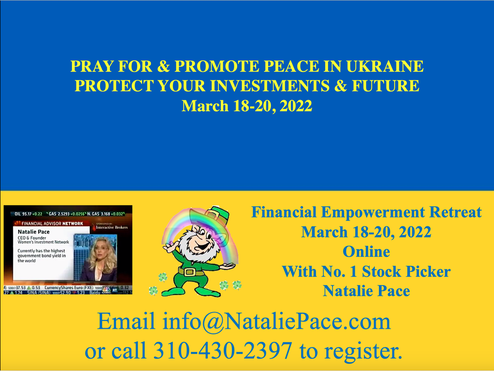 Join us for our St. Patrick's Weekend Financial Empowerment Retreat. March 18-20, 2022. Email [email protected] to learn more. Register with friends and family to receive the best price. Click for testimonials & details. Other Blogs of Interest How Will Russian Boycotts Effect U.S. Multinational Companies? Oil and Gas Trends During Wartime Russia Invades Ukraine. How Have Stocks Responded in Past Wars? Zombie Companies. Rescue, Rehab or Liquidate? Spotify: Music to my Ears. Cannabis Crashes. 2022 Crystal Ball in Stocks, Real Estate, Crypto, Cannabis, Gold, Silver & More. Interview with the Chief Investment Strategist of Charles Schwab & Co., Inc. Stocks Enter a Correction Investor IQ Test Investor IQ Test Answers Real Estate Risks. What Happened to Ark, Cloudflare, Bitcoin and the Meme Stocks? Omicron is Not the Only Problem From FAANNG to ZANA MAD MAAX Ted Lasso vs. Squid Game. Who Will Win the Streaming Wars? Starbucks. McDonald's. The Real Cost of Disposable Fast Food. The Plant-Based Protein Fire-Sale What's Safe in a Debt World? Inflation, Gasoline Prices & Recessions China: GDP Soars. Share Prices Sink. The Competition Heats Up for Tesla & Nio. How Green in Your Love for the Planet? S&P500 Hits a New High. GDP Should be 7% in 2021! Will Work-From-Home and EVs Destroy the Oil Industry? Insurance and Hedge Funds are at Risk and Over-Leveraged. Office Buildings are Still Ghost Towns. Money Market Funds, FDIC, SIPC: Are Any of Them Safe? My 24-Year-Old is Itching to Buy a Condo. Should I Help Him? The 12-Step Guide to Successful Investing. Gardeners Creating Sanctuary & Solutions in Food Deserts. 2021 Company of the Year Almost 5 Million Americans are Behind on Rent & Mortgage. Real Estate Hits All-Time High. Rebalancing Your Nest Egg IQ Test. Answers to the Rebalancing Your Nest Egg IQ Test. Videoconferencing in a Post-Pandemic World (featuring Zoom & Teladoc). Sanctuary Sandwich Home. Multigenerational Housing. Interview with Lawrence Yun, the chief economist of the National Association of Realtors. 10 Budget Leaks That Cost $10,000 or More Each Year. The Stimulus Check. Party Like It's 1999. Would You Pay $50 for a Cafe Latte? Is Your Tesla Stock Overpriced? 10 Questions for College Success. Is FDIC-Insured Cash at Risk of a Bank Bail-in Plan? 8 Money Myths, Money Pits, Scams and Conspiracy Theories. Why Are My Bonds Losing Money? The Bank Bail-in Plan on Your Dime. Important Disclaimers Please note: Natalie Pace does not act or operate like a broker. She reports on financial news, and is one of the most trusted sources of financial literacy, education and forensic analysis in the world. Natalie Pace educates and informs individual investors to give investors a competitive edge in their personal decision-making. Any publicly traded companies or funds mentioned by Natalie Pace are not intended to be buy or sell recommendations. ALWAYS do your research and consult an experienced, reputable financial professional before buying or selling any security, and consider your long-term goals and strategies. Investors should NOT be all in on any asset class or individual stocks. Your retirement plan should reflect a diversified strategy, which has been designed with the assistance of a financial professional who is familiar with your goals, risk tolerance, tax needs and more. The "trading" portion of your portfolio should be a very small part of your investment strategy, and the amount of money you invest into individual companies should never be greater than your experience, wisdom, knowledge and patience. Information has been obtained from sources believed to be reliable. However, NataliePace.com does not warrant its completeness or accuracy. Opinions constitute our judgment as of the date of this publication and are subject to change without notice. This material is not intended as an offer or solicitation for the purchase or sale of any financial instrument. Securities, financial instruments or strategies mentioned herein may not be suitable for all investors. 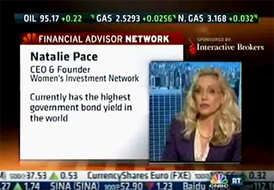 About Natalie Pace Natalie Wynne Pace is an Advocate for Sustainability, Financial Literacy & Women's Empowerment. She has been ranked as a No. 1 stock picker, above over 835 A-list pundits, by an independent tracking agency (TipsTraders). The ABCs of Money remained at or near the #1 Investing Basics e-book on Amazon for over 3 years (in its vertical), with over 120,000 downloads and a mean 5-star ranking. The 5th edition of The ABCs of Money was released on September 17, 2021. Natalie Pace's easy as a pie chart nest egg strategies earned gains in the last two recessions and have outperformed the bull markets in between. That is why her Investor Educational Retreats, books and private coaching are enthusiastically recommended by Nobel Prize winning economist Gary S. Becker, TD AMERITRADE chairman Joe Moglia, Kay Koplovitz and many Main Street investors who have transformed their lives using her Thrive Budget and investing strategies. Click to view a video testimonial from Nilo Bolden. Comments are closed.
|
AuthorNatalie Pace is the co-creator of the Earth Gratitude Project and the author of The Power of 8 Billion: It's Up to Us, The ABCs of Money, The ABCs of Money for College, The Gratitude Game and Put Your Money Where Your Heart Is. She is a repeat guest & speaker on national news shows and stages. She has been ranked the No. 1 stock picker, above over 830 A-list pundits, by an independent tracking agency, and has been saving homes and nest eggs since 1999. Archives
July 2024
Categories |







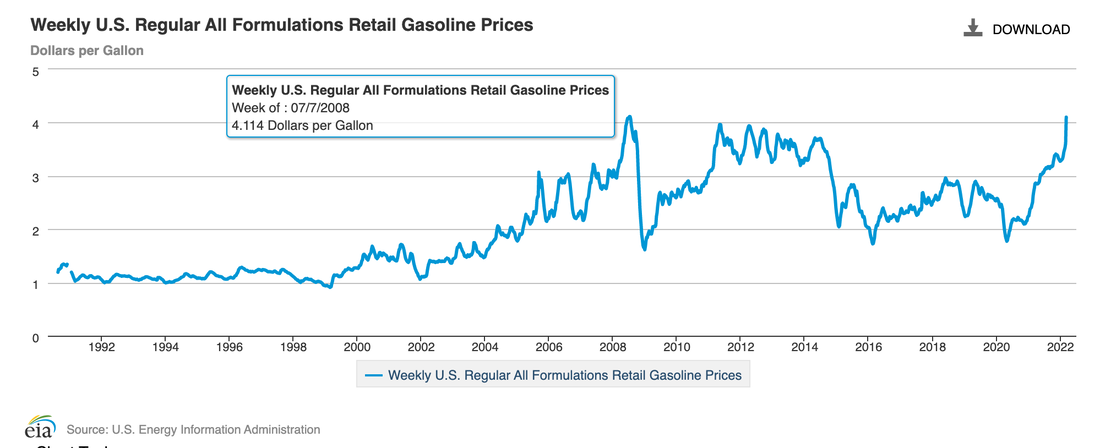
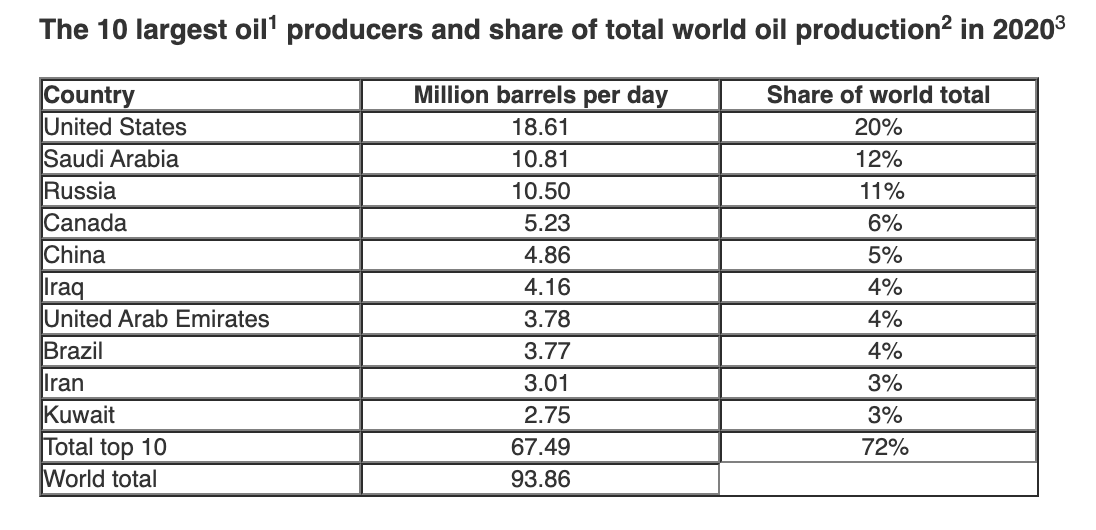
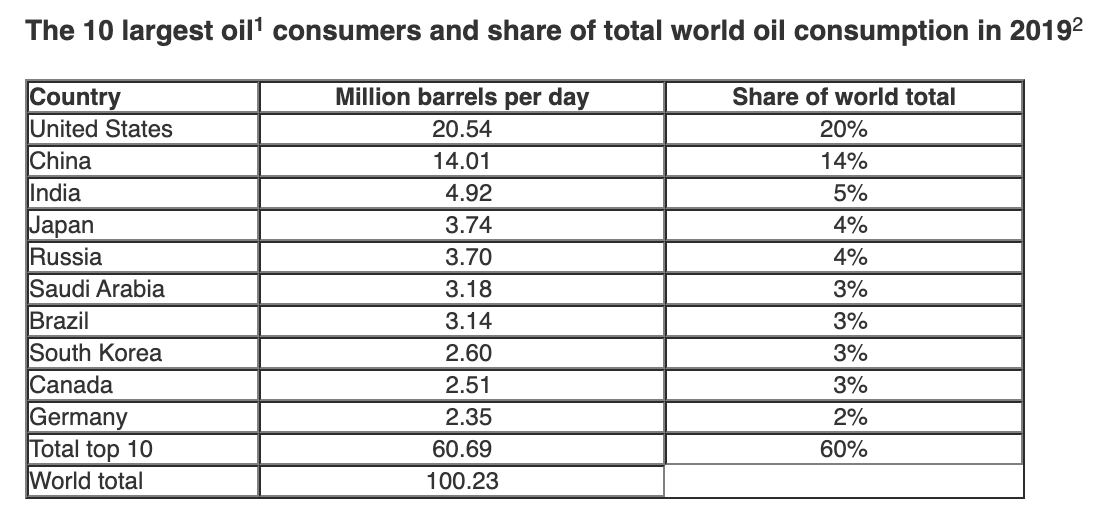
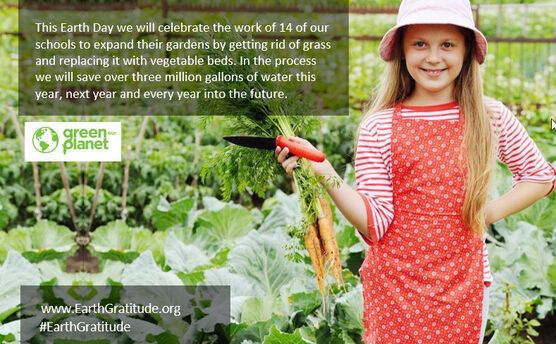
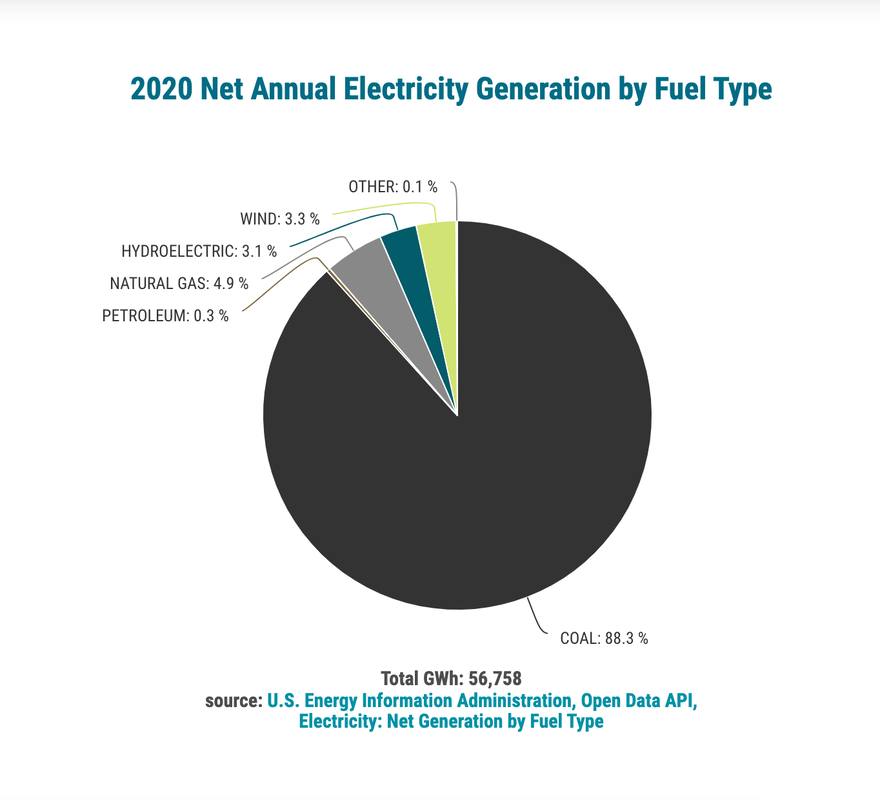
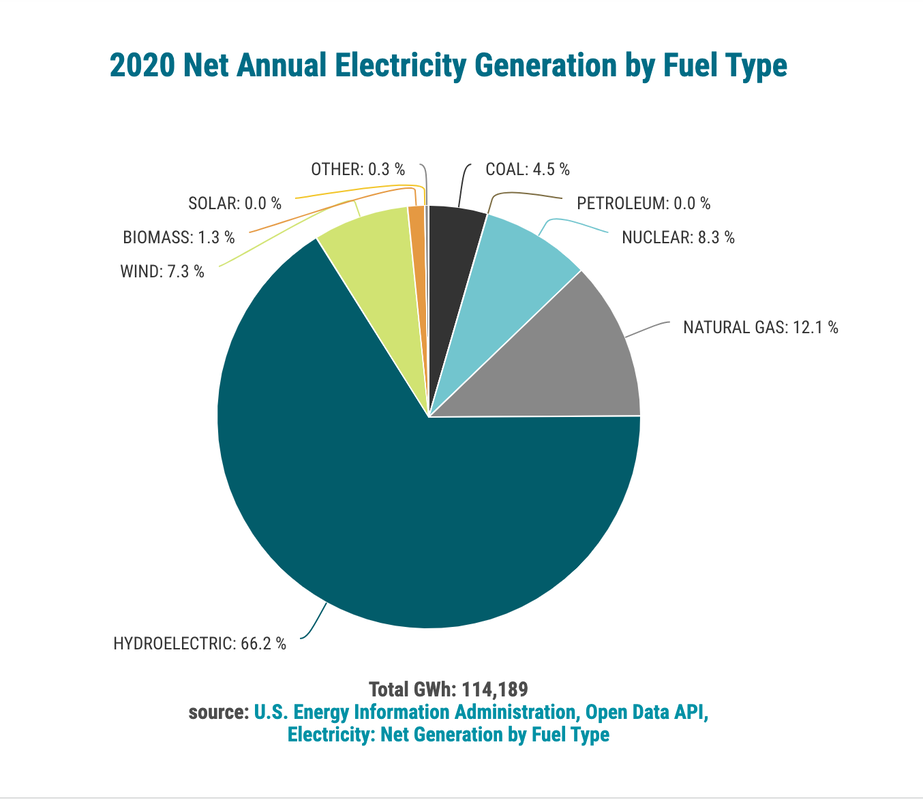
 RSS Feed
RSS Feed